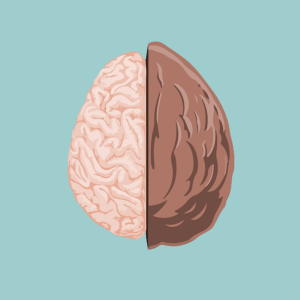
5.1M
Downloads
245
Episodes
I’m Emma McAdam, a Licensed Marriage and Family Therapist and my mission is to make mental health resources more easy to access. I take therapy skills and psychological research and condense them down into bite-sized nuggets of help. I’m here to spread the message that while mental illness is real, it’s common, it’s debilitating, it’s also treatable. There are dozens of research-backed approaches to treating depression, anxiety, and other mental illness. Change, growth, and healing are possible. Please keep courage! Try one little thing every day to improve your life and health and things can get so much better! Therapy in a Nutshell, and the information provided by Emma McAdam, is solely intended for informational and entertainment purposes and is not a substitute for advice, diagnosis, or treatment regarding medical or mental health conditions. Although Emma McAdam is a licensed marriage and family therapist, the views expressed on this site or any related content should not be taken for medical or psychiatric advice. Always consult your physician before making any decisions related to your physical or mental health. Therapy in a Nutshell and it’s logo are Registered Trademarks of Therapy in a Nutshell, LLC
Episodes

Thursday Mar 10, 2022
Are You Ask Culture or Guess Culture? This Communication Skill Is Life-Changing
Thursday Mar 10, 2022
Thursday Mar 10, 2022
Most people don’t even know about this communication style, but if you did, you could solve a lot of problems in your relationships.
You can learn to improve relationships by learning how to identify whether you are an asker or a guesser. This is a communication style that no one is talking about, but if you learn it, your life can change for the better.
In guess culture style of communication you try to put out feelers, because you don’t want to make someone uncomfortable by asking directly. You may hint at a request or subtly suggest something, and then only ask directly if you’re pretty sure the answer will be yes.
In guess culture you rely on shared cultural norms. For example in Greece, it is rude to leave food on your plate- it signals that you didn’t like it. In China it is rude to clear your plate because it sends the message that there wasn’t enough food offered. The subtleties of the culture allow for people to show respect and consideration for each other, but can lead to confusion for outsiders. Askers may hate this, but the reality is, a huge amount of communication is nonverbal.
This is ask culture. In some families you grow up with the message “It can’t hurt to ask.” but you might get no for an answer. That’s ok.
My sponsor, BetterHelp, connects you to a licensed professional for $65/week. Try it now for 10% off: https://betterhelp.com/therapyinanutshell
Learn more in one of my in-depth mental health courses: https://courses.therapyinanutshell.com/?utm_source=podcast&utm_medium=03102022
Support my mission on Patreon: https://www.patreon.com/therapyinanutshell
Sign up for my newsletter: https://www.therapynutshell.com?utm_medium=YTDescription&utm_source=podcast
Check out my favorite self-help books: https://kit.co/TherapyinaNutshell/best-self-help-books
Therapy in a Nutshell and the information provided by Emma McAdam are solely intended for informational and entertainment purposes and are not a substitute for advice, diagnosis, or treatment regarding medical or mental health conditions. Although Emma McAdam is a licensed marriage and family therapist, the views expressed on this site or any related content should not be taken for medical or psychiatric advice. Always consult your physician before making any decisions related to your physical or mental health.
In therapy I use a combination of Acceptance and Commitment Therapy, Systems Theory, positive psychology, and a bio-psycho-social approach to treating mental illness and other challenges we all face in life. The ideas from my videos are frequently adapted from multiple sources. Many of them come from Acceptance and Commitment Therapy, especially the work of Steven Hayes, Jason Luoma, and Russ Harris. The sections on stress and the mind-body connection derive from the work of Stephen Porges (the Polyvagal theory), Peter Levine (Somatic Experiencing) Francine Shapiro (EMDR), and Bessel Van Der Kolk. I also rely heavily on the work of the Arbinger institute for my overall understanding of our ability to choose our life's direction. And deeper than all of that, the Gospel of Jesus Christ orients my personal worldview and sense of security, peace, hope, and love https://www.churchofjesuschrist.org/comeuntochrist/believe
If you are in crisis, please contact the National Suicide Prevention Hotline at https://suicidepreventionlifeline.org/ or 1-800-273-TALK (8255) or your local emergency services.
Copyright Therapy in a Nutshell, LLC

No comments yet. Be the first to say something!